
- •Lecture 5
- •POINTS AT ISSUE
- •STRUCTURAL TYPES OF SENTENCES
- •SENTENCE CONNECTION
- •KINDS OF CONJUNCTIONS
- •COORDINATORS
- •CORRELATIVE CONJUNCTIONS
- •CONJUNCTIVE ADVERBS
- •COMPOUND SENTENCES
- •COMPOUND SENTENCES (EXAMPLES)
- •SUBORDINATION
- •SUBORDINATORS
- •POSITION OF MAIN AND DEPENDENT CLAUSES
- •TYPES OF CLAUSES
- •NOUN CLAUSES (‘WHO?’ / ‘WHAT?’)
- •THE SUBJECT CLAUSE
- •TREE DIAGRAM OF THE SUBJECT CLAUSE
- •THE NOUN (OBJECT) CLAUSE
- •TREE DIAGRAM OF THE NOUN (OBJECT) CLAUSE
- •NOUN CLAUSE
- •ADJECTIVE (RELATIVE) CLAUSES
- •ADJECTIVE CLAUSES MAY MODIFY
- •The only place I could go to was Aberdeen. S
- •DEFINING RELATIVE CLAUSES
- •DEFINING :: NON-DEFINING CLAUSES
- •ADVERBIAL CLAUSES
- •COMPOUND-COMPLEX SENTENCES
- •SUMMARY
- •PRAGMATIC SYNTAX
- •PRAGMATICS
- •FOUNDERS OF SPEECH ACT THEORY
- •To SPEAK is
- •JOHN LANGSHAW AUSTIN,
- •“How to Do Things With Words" is
- •JOHN AUSTIN
- •LOCUTION::ILLOCUTION::PERLOCUTI ON
- •LOCUTION::ILLOCUTION::PERLOCUTI ON
- •Professor of Philosophy at the, University of California, Berkeley
- •SPEECH ACTS THEORY
- •J. SEARLE & D. VANDERVEKEN’S
- •CLASSIFICATION OF SPEECH ACTS (SEARLE, 1975)
- •ASSERTIVES
- •DIRECTIVES
- •COMISSIVES
- •EXPRESSIVES
- •DECLARATIVES
- •MAIN CHARACTERISTICS OF SPEECH ACTS
- •SPEECH ACTS CHARACTERISTICS (CTD)
- •SA PARTICIPANTS
- •THE (IN)DIRECT ADDRESSEE
- •PROF. G. POCHEPTSOV’S
- •DIRECT :: INDIRECT SPEECH ACTS
- •GRICE’S MAXIMS OF COMMUNICATION, 1975
- •THAT’S ALL, FOLKS!
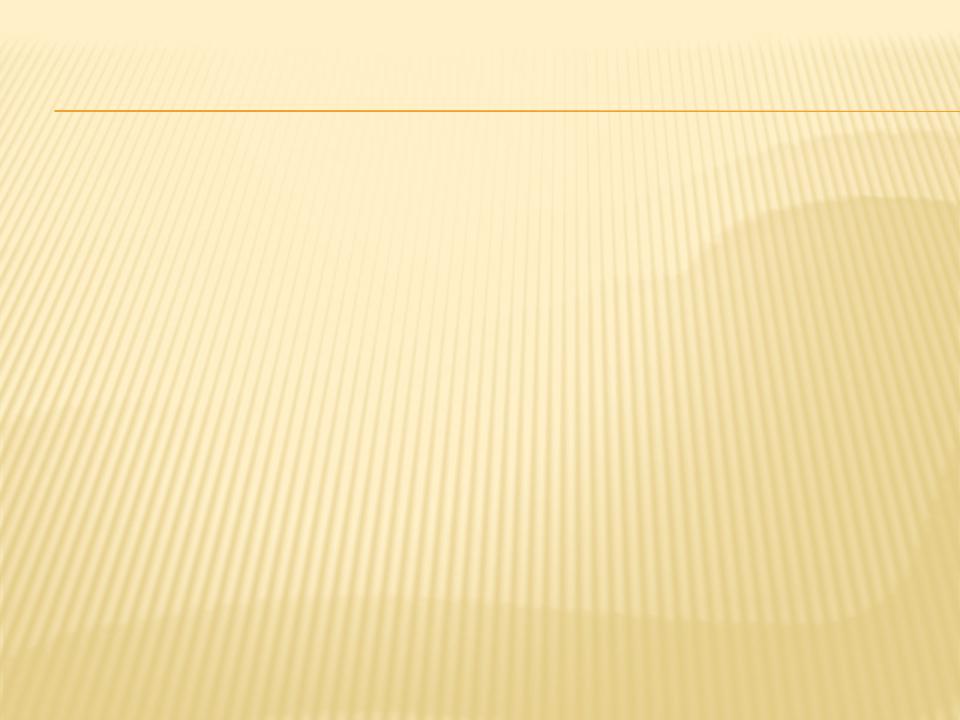
FOUNDERS OF SPEECH ACT THEORY
Interest in speech act theory can be traced back to the end of the 19th century or even earlier
It is generally acknowledged that John Austin
is 'the founding father of speech act theory' and his student John R. Searle has made the most thorough and recognized systematization of this
theory of language, the basic tenet underlying which
is that to speak is to act.
31
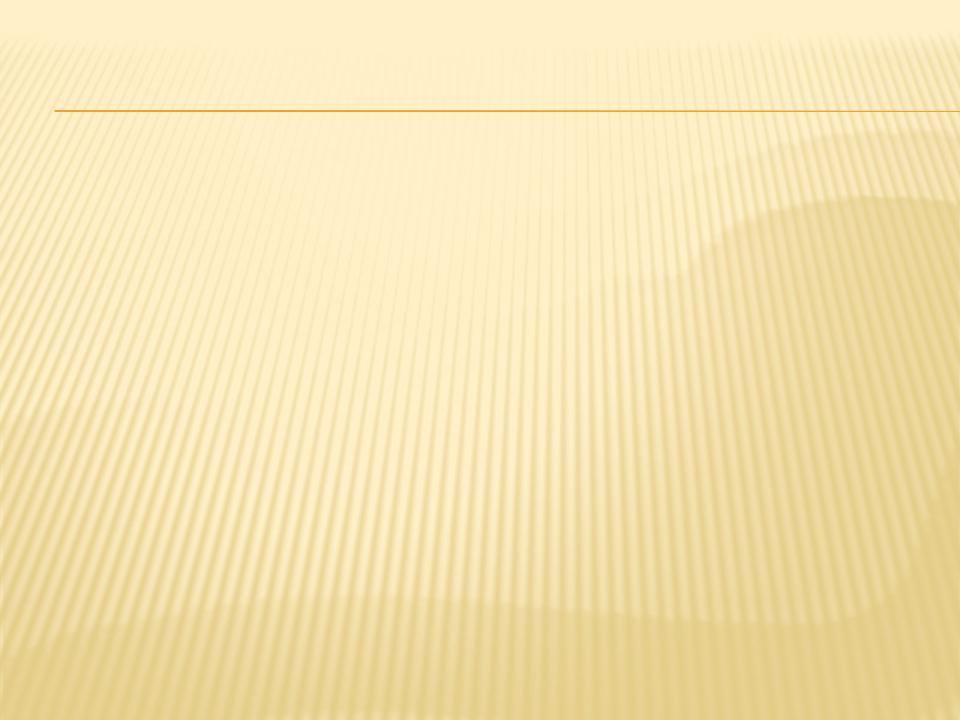
To SPEAK is
to ACT
32
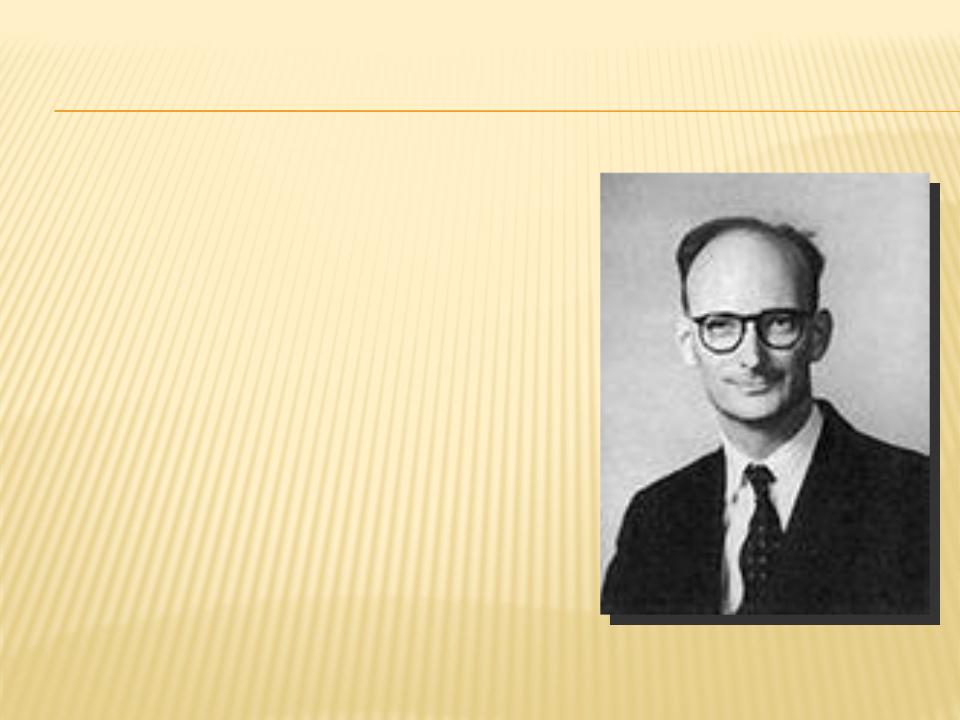
JOHN LANGSHAW AUSTIN,
(28 МАRCH 1911, LANCASTER — 8 FEB, 1960, OXFORD)
a British philosopher of language, is widely associated with the concept of the speech act and the idea that speech is itself a form of action.
Austin: language is not just a passive practice of describing a given reality, but a particular practice that can be used to invent and
affect realities.
33
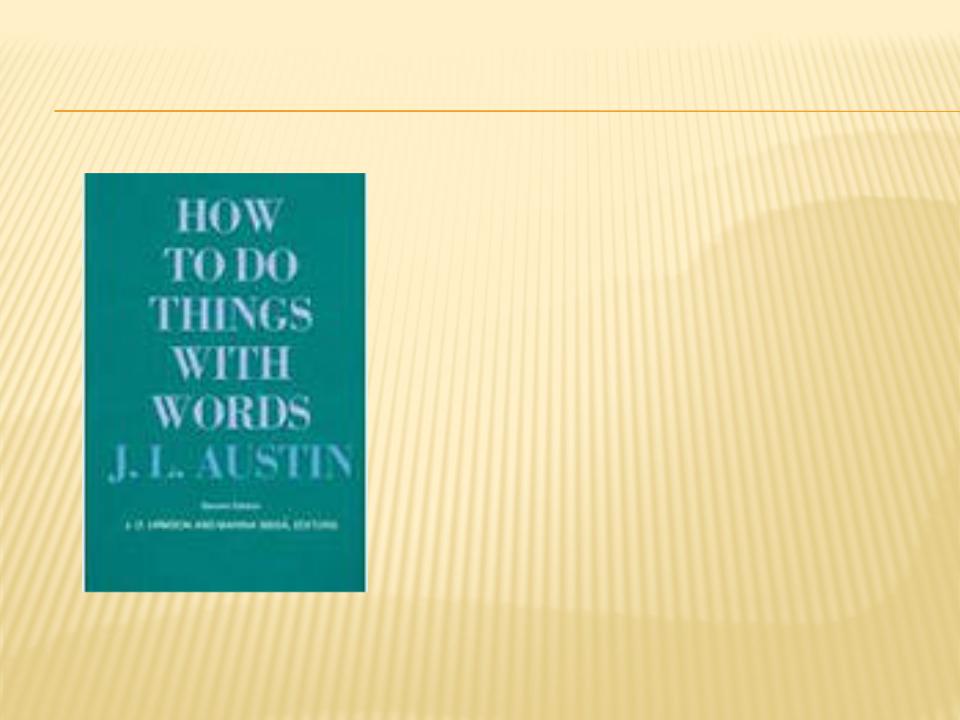
“How to Do Things With Words" is
Austin's most influential |
|
work, in which he |
|
attacks what was at his |
|
time a predominant |
|
account in philosophy, |
|
the view that the |
|
chief business of |
|
sentences is to state |
|
facts, and thus to be |
|
true or false based on |
|
the truth or falsity of |
34 |
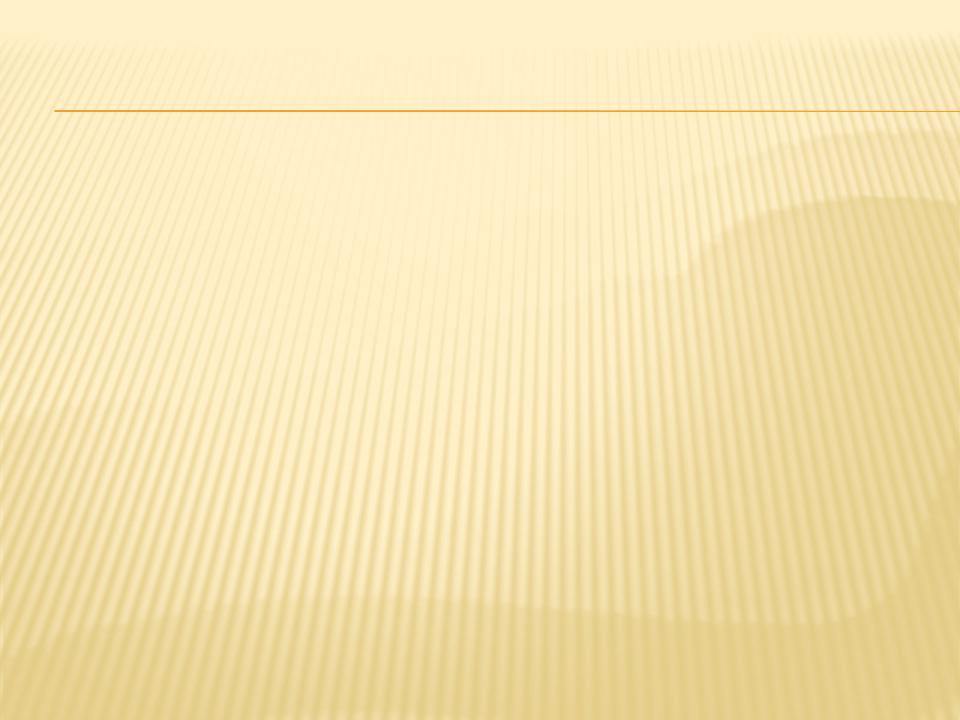
JOHN AUSTIN
His work in the 1950s provided a theoretical outline and the terminology for the modern study of speech acts developed subsequently by John R. Searle, Kent Bach, Robert M. Harnish, and William P. Alston.
In the theory of speech acts, attention has focused on the locution, illocution, and perlocution
35
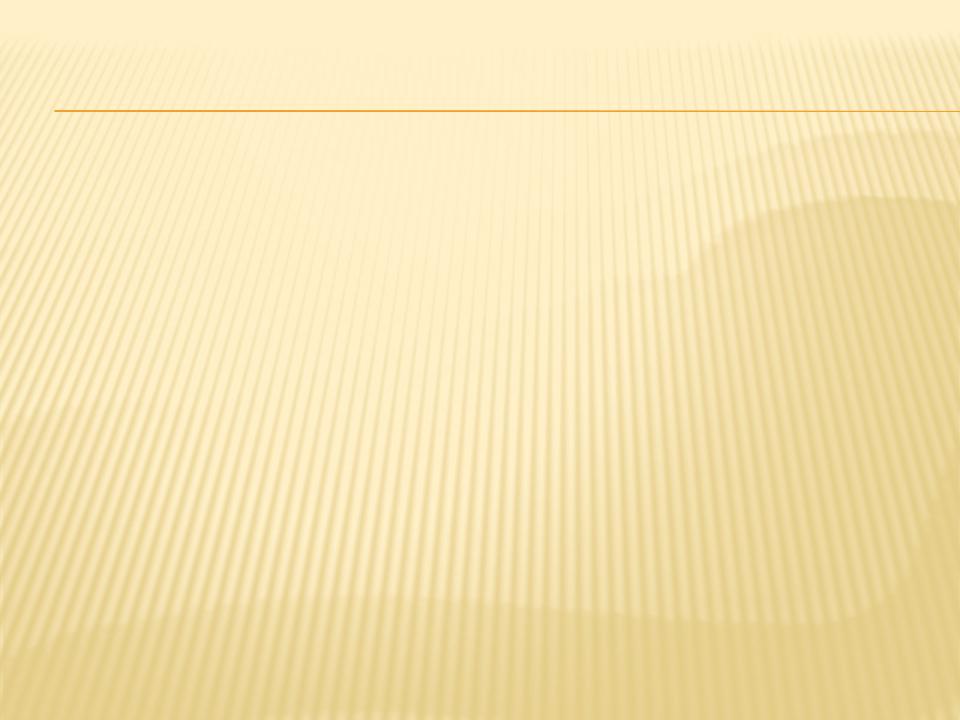
LOCUTION::ILLOCUTION::PERLOCUTI ON
Austin introduced the difference by means of a contrast with the three kinds of acts or aspects of acting:
the locutionary act is an act of saying something,
the illocutionary act is an act performed in saying something,
the perlocutionary act is an act performed by saying something.
Austin, however, eventually abandoned the "in saying" / "by saying" test (1975).
36
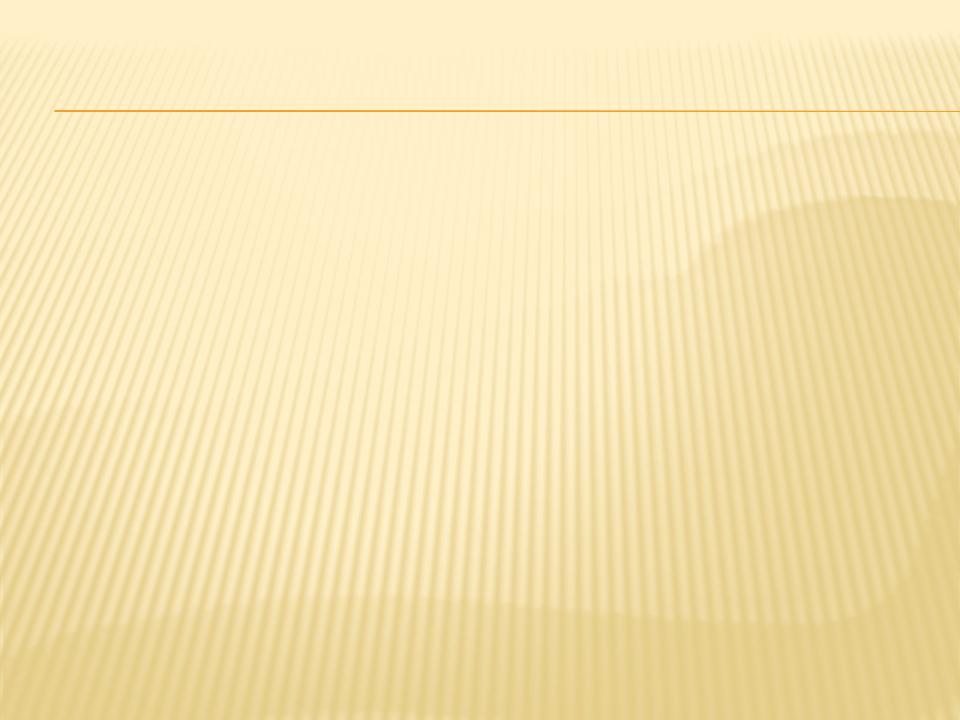
LOCUTION::ILLOCUTION::PERLOCUTI ON
In uttering the locution “We’ve run out of bread" at the dinner table, one may thereby perform the illocutionary act of requesting / ordering to buy some bread, as well as the distinct locutionary act of uttering the declarative sentence about the absence of bread, and the further perlocutionary act of causing somebody to buy bread.
37
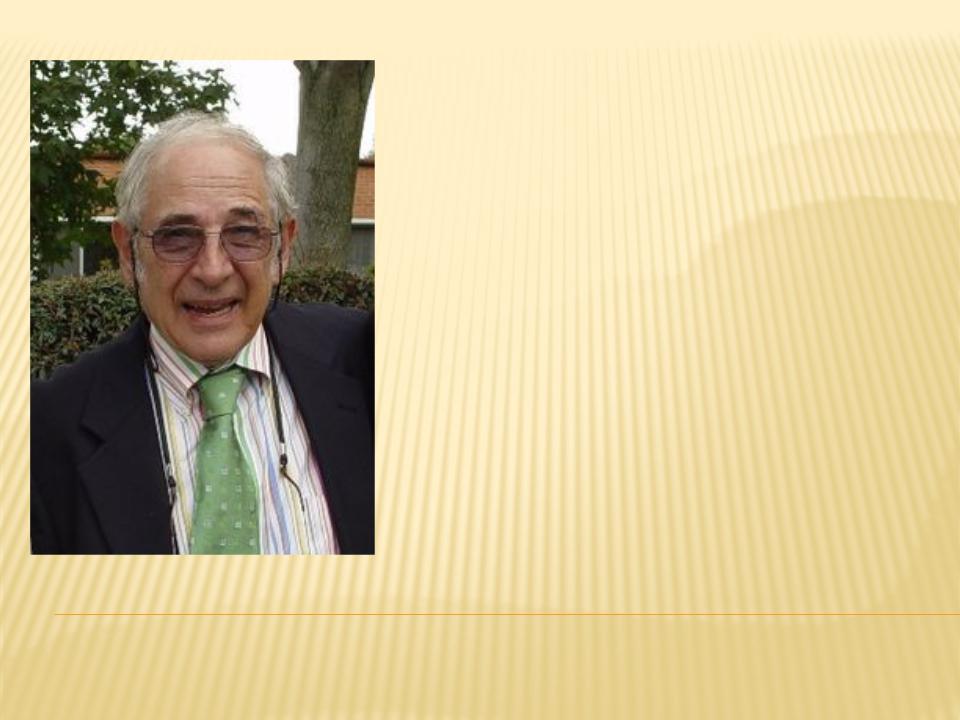
Professor of Philosophy at the, University of California, Berkeley
Is noted for contributions to the philosophy of language, philosophy of mind and consciousness, on the characteristics of socially constructed versus physical realities, and on practical reason.
JOHN ROGERS SEARLE (JULY 31, 1932)
38
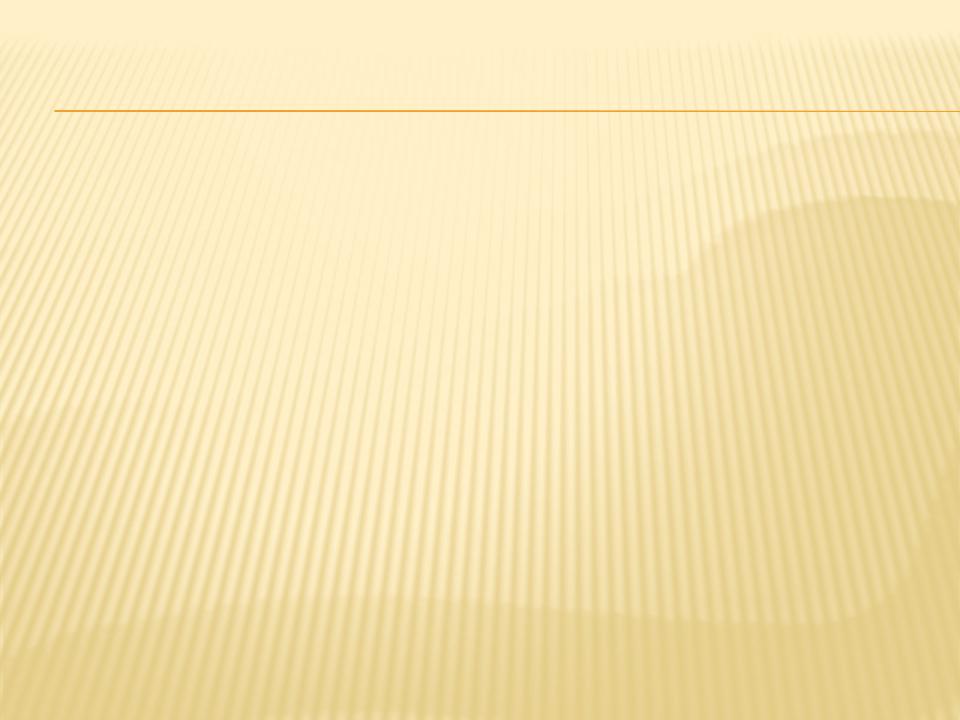
SPEECH ACTS THEORY
Theory of meaning holds that the meaning of linguistic expressions can be explained in terms of the rules governing their use in performing various speech acts
e.g., admonishing, asserting, commanding, exclaiming, promising, questioning, requesting, warning.
39
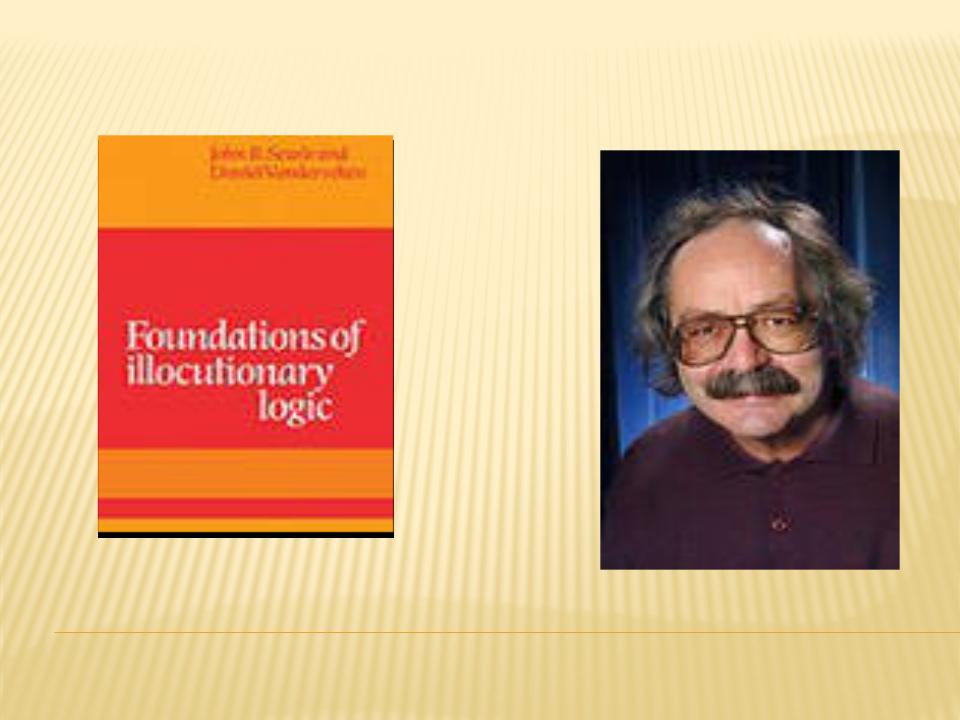
J. SEARLE & D. VANDERVEKEN’S |
DAVID VANDERVEKEN, PROFESSOR |
BOOK |
OF UNIVERSITY OF QUEBEK, CANADA |
J.SEARLE& D. VANDERVEKEN WORKED OUT THE SYSTEM OF ILLOCUTIONARY LOGIC
40
